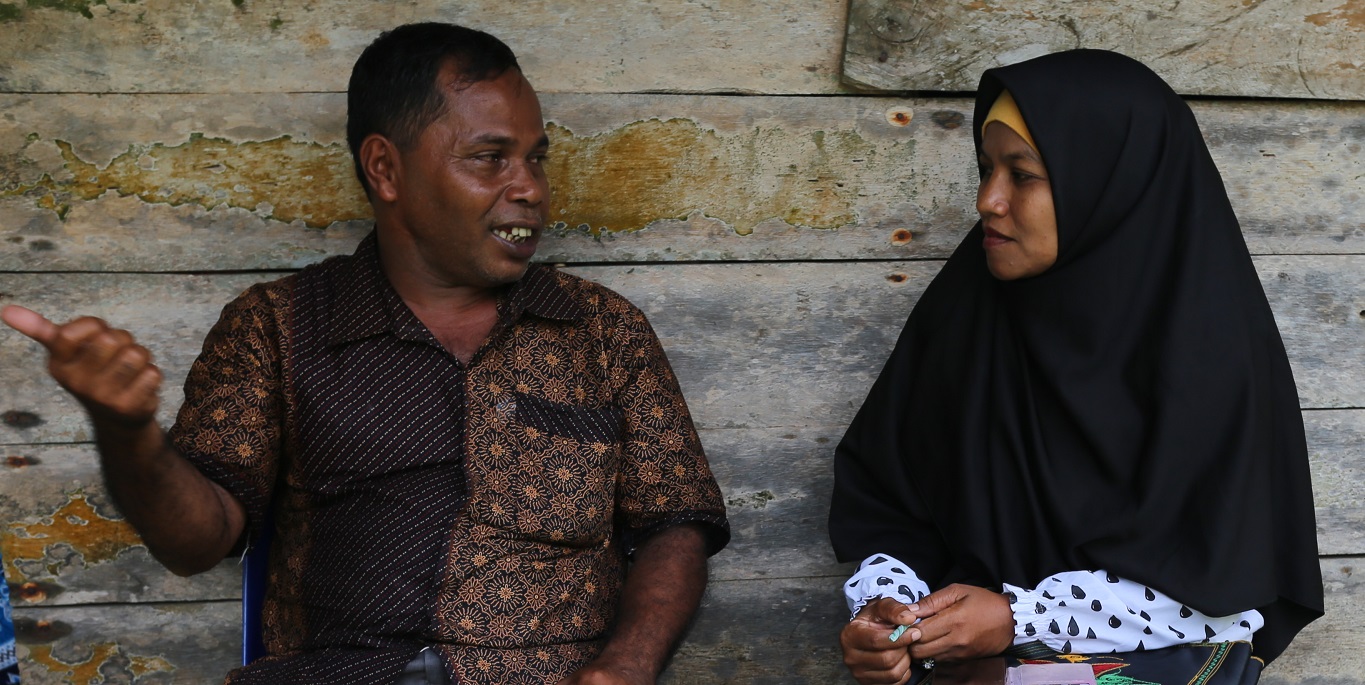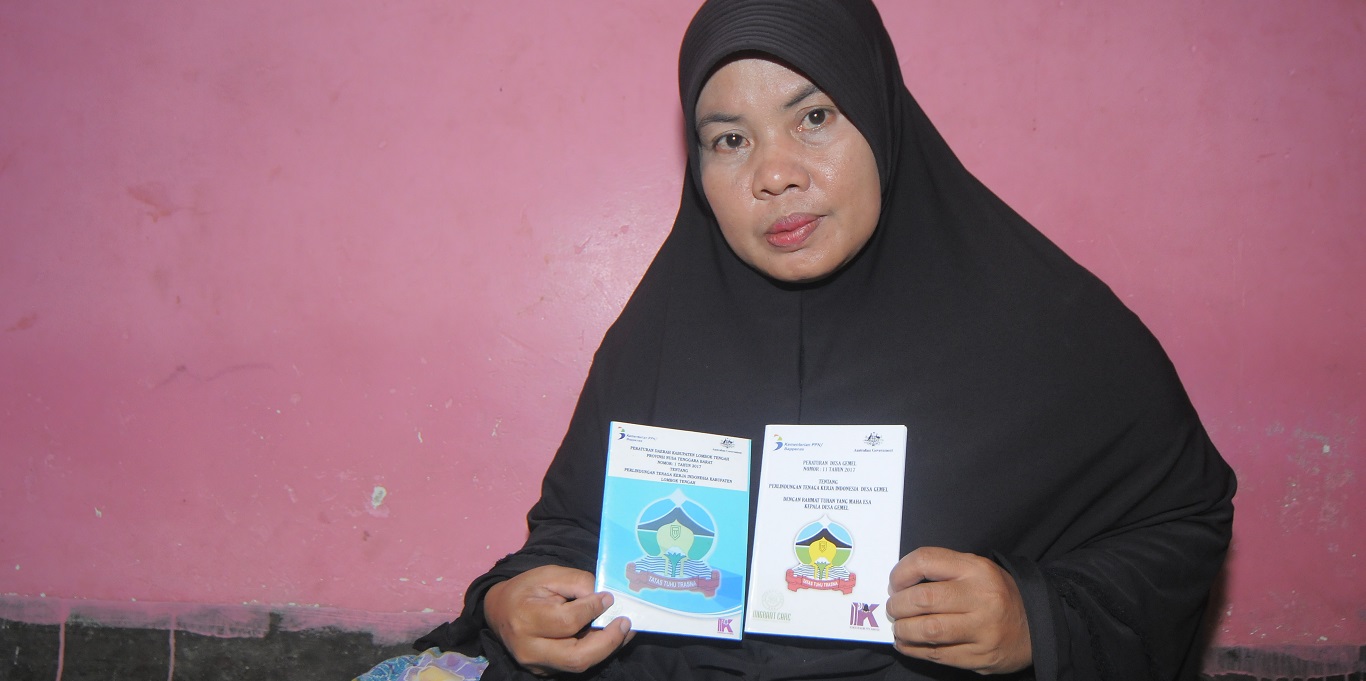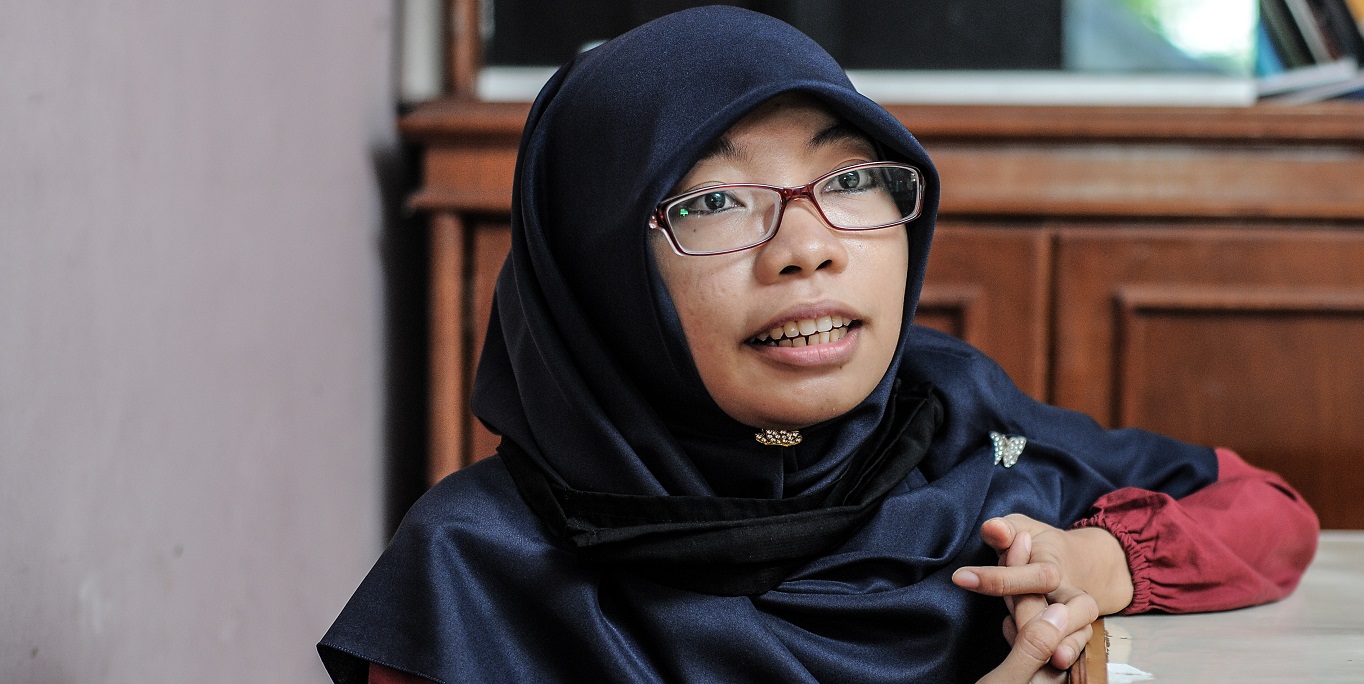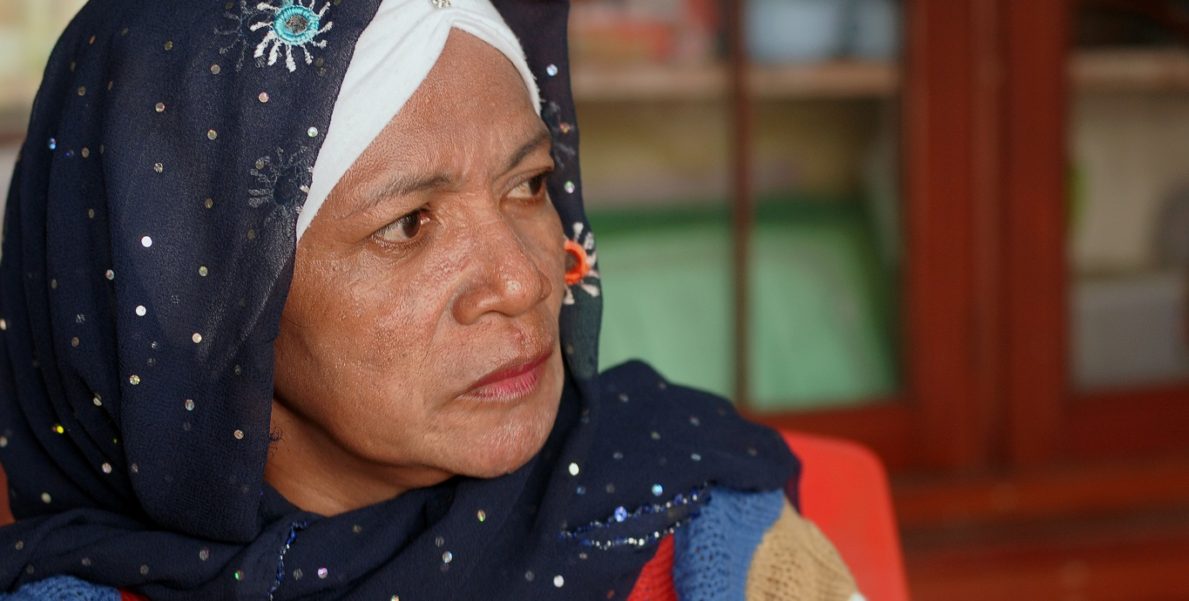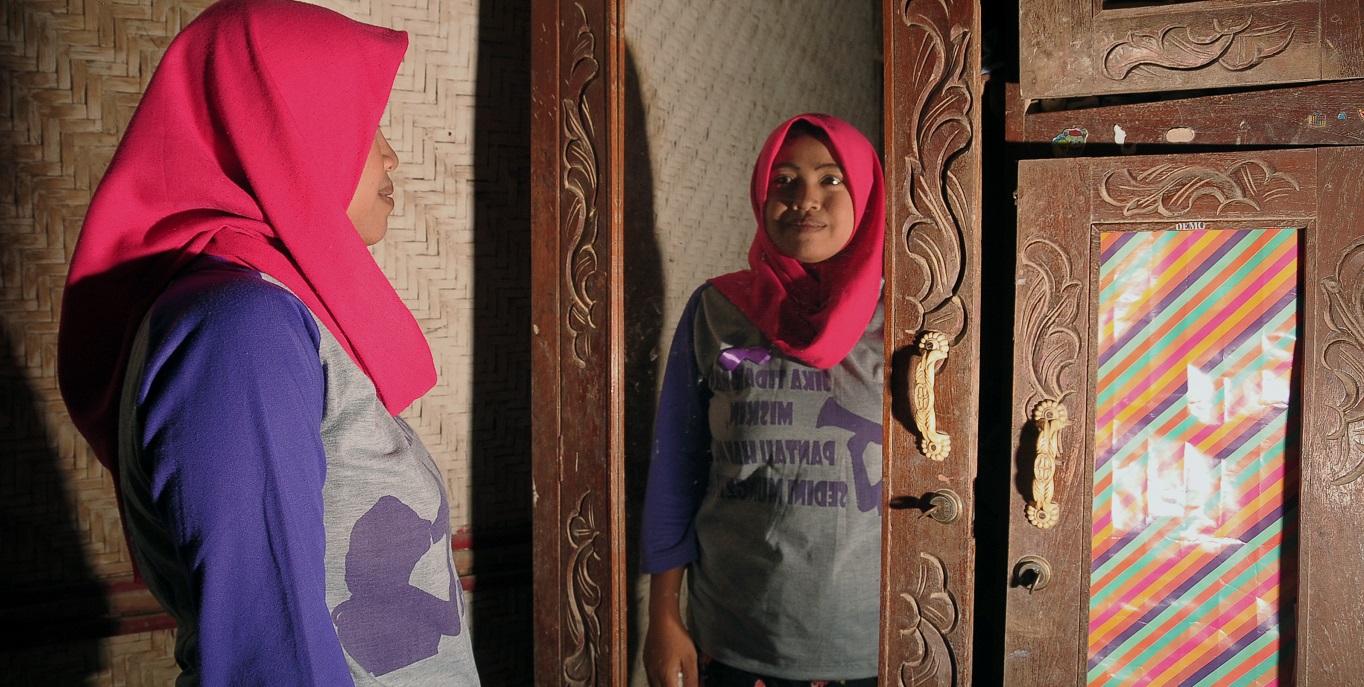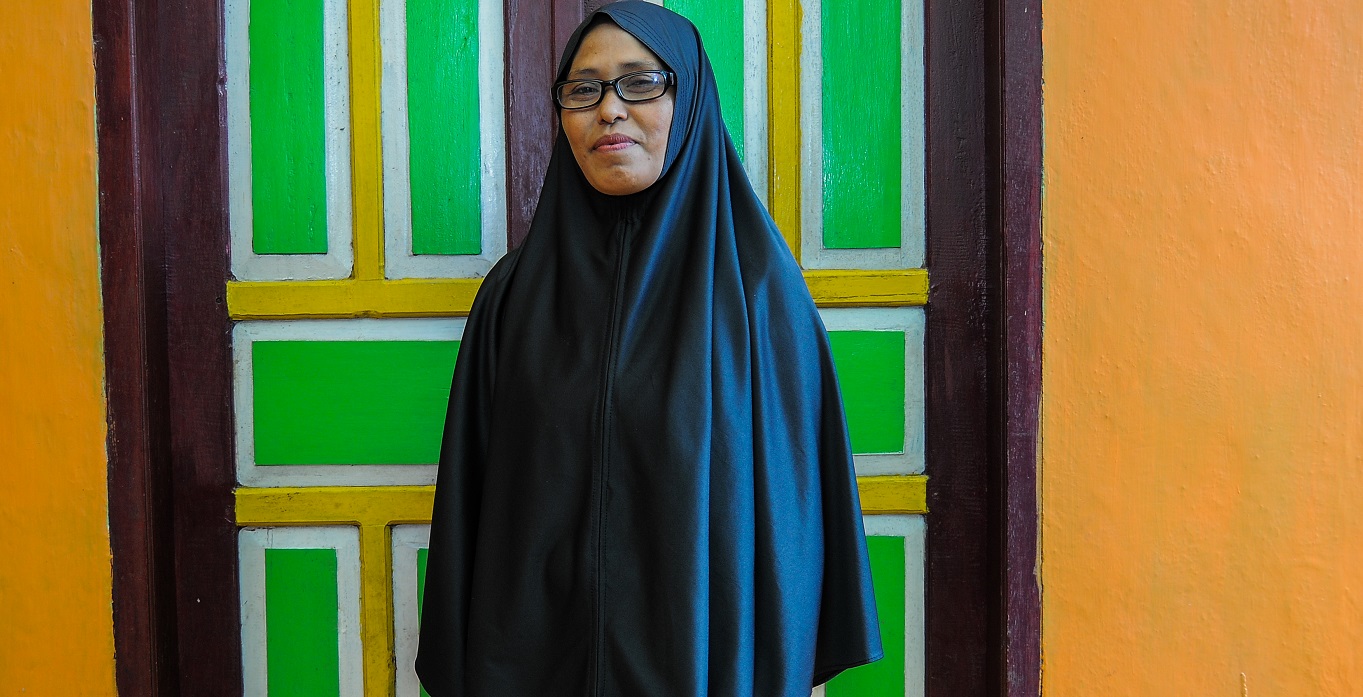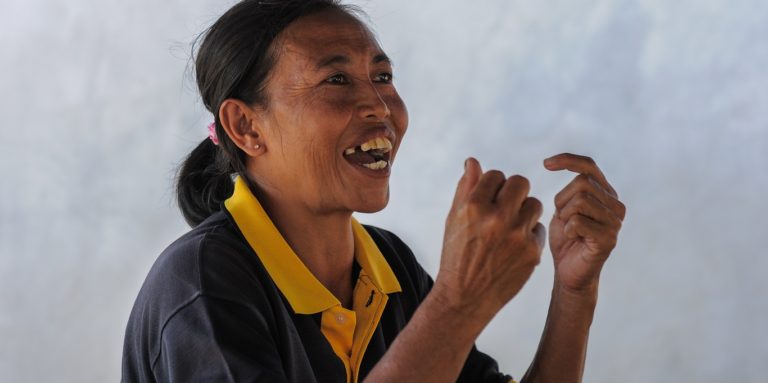Stories
Siti Zamzanah: Utilising Knowledge and Experience for a Better Work
31 December 2015Penulis: admin
Siti Zamzanah (58) lives in the village of Notoprajan in Ngampilan, Yogyakarta, with her two adult children, a son in-law and two grandchildren. They live in a house that has belonged to her since her husband passed away in 2002. After graduating from senior high school in the mid-70s, she had many different kinds of job. By the time she met her husband in the late-70s, she had already work experience that was part-time and full-time, formal and informal, and mostly in the garment industry.
She continued working full-time as a seamstress for a fashion company after getting married, but when their youngest child became a teenager in 1998, she felt she needed to dedicate more time and attention to her family. So she left her full-time job and took on work she could do at home making button holes in clothes and also sewing on the buttons. As a first step, Siti borrowed money from a local cooperative to buy herself a sewing machine and materials (thread, needles, etc). She then got in touch with an agent whom she knew from fellow home workers and her previous full-time job.
Siti has been making button holes and sewing buttons for 16 years now. She generally enjoys her life—spending time with her family and working from home—but she is not fully satisfied with her work. She is paid IDR 2,000 (USD 0.15) per ten button holes and IDR 4,500 (USD 0.35) per ten button holes with buttons too. She is able to make approximately IDR 1,000,000 (USD 75) a month, which she must allocate to buy more sewing materials and pay for electricity and maintenance of her sewing machine.
Her children and son-in-law work different jobs, but also in the informal sector and on a part-time basis. Their combined income is just sufficient for the family to meet their basic needs. They cannot afford social protection programs such as Jamkesmas and BPJS, but they are not categorised as “poor” by the government, which otherwise would provide them with the protection for free.
In 2008, Siti joined a home workers group organised by Yasanti, a local NGO working in the Special Region of Yogyakarta and Central Java, and one of the Implementing Partners of the ILO/MAMPU – Access to Employment and Decent Work for Women Project funded by the Government of Australia. She has since been actively involved in group discussions and activities.
“I am happy to learn about new topics through this group, such as gender, human rights and work quality,” she said. She has, for instance, utilised her knowledge to improve her product quality. “Previously, I measured the distance between two button holes by using my fingers or just made an approximation. Since I learned about work quality, I now understand that I must offer good quality products. Since then, I bought a tape measure and pencil, and I measure the distance in centimeters. The distance between any two button holes is now uniform.”
Siti revealed that her agent had never once offered her a wage increase. In the 16 years of doing the same work, her price for one hole and button had slowly increased but only from IDR 150 to IDR 450. And this increase was possible only because she asked for it. She emphasised that she had always backed up her requests for an increase with facts about the rising prices of materials and electricity.
Siti learned this by herself, long before she joined the Yasanti. Now, she is happy to share her approach with its other members. “I am glad that all of us can share each other’s experiences and support each other in this group. That way, hopefully all of us can have better working conditions.”



